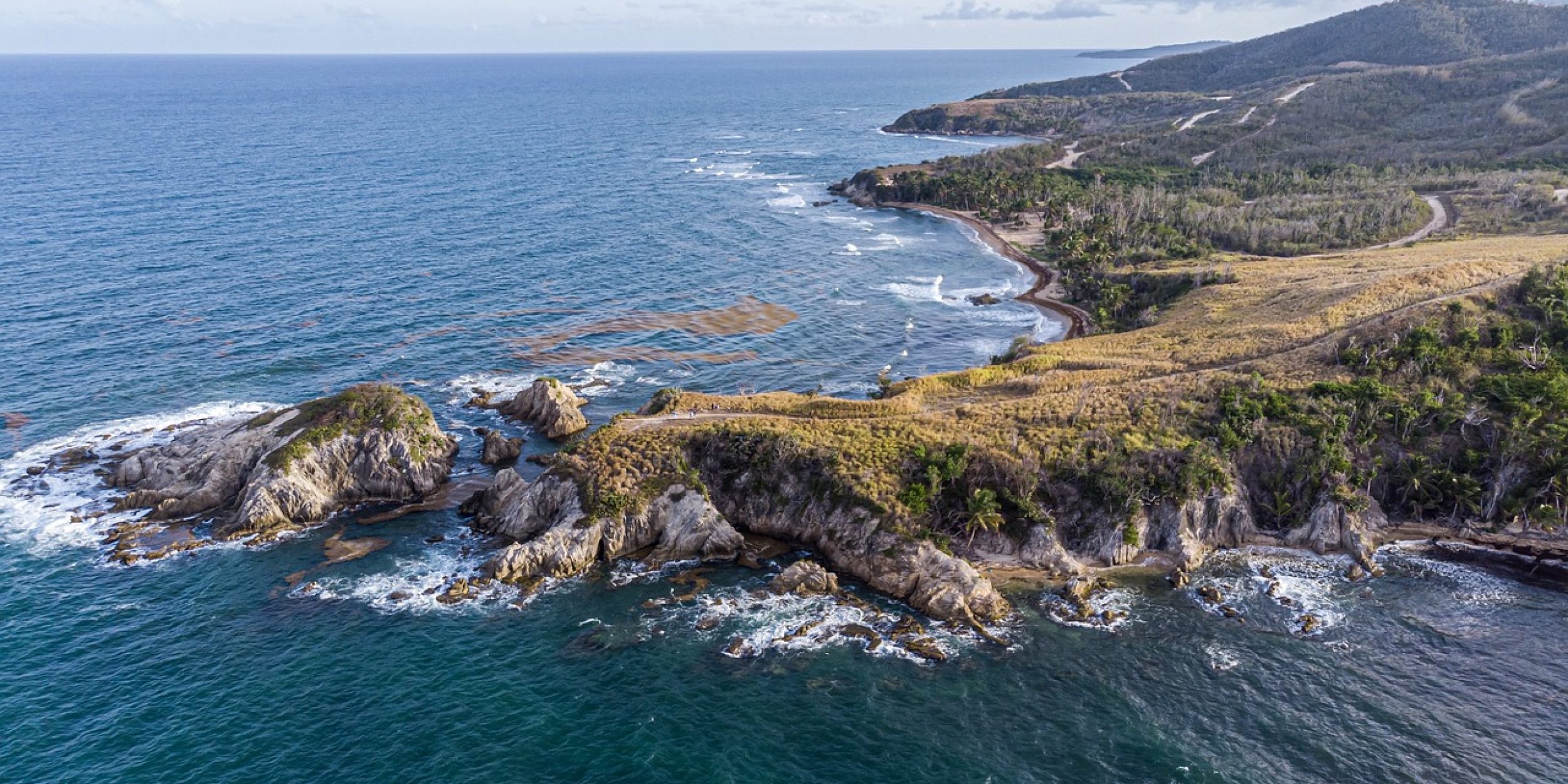The Climate Program Office’s Modeling, Analysis, Predictions, and Projections (MAPP) Program and National Integrated Drought Information System (NIDIS) supported a new study that investigates Saharan dust as it journeys across the Atlantic to the Caribbean. This annual phenomenon has long fascinated researchers, and CPO-supported scientists Paul Miller (Louisiana State University) and Craig Ramseyer (Virginia Tech) highlight a newly identified connection between Saharan dust and droughts in the Caribbean. This paper, published in JGR Atmospheres, builds on a growing body of research funded by MAPP and NIDIS to characterize and anticipate complex interactions related to drought.
Using an innovative machine learning technique called self-organizing maps, the researchers identified distinct patterns in the trans-Atlantic dust transport, shedding light on how the Saharan Air Layer (SAL) affects convection and rainfall in the Caribbean islands. The results show a surprising relationship that specifically affects the water-vulnerable island of Puerto Rico. Days with the most prominent Saharan dust correlated with fewer thunderstorms in the Atlantic and less rainfall across the whole island, a pattern which has become more frequent over the past forty years. These findings point to a dynamic relationship between Saharan dust and drought in Puerto Rico and a possibility of increased water stress in future decades, urging a closer look at the long and short-term implications for climate science and water management. This team will continue working to provide critical monitoring and drought early warning improvements in the Caribbean.
For more information, contact Clara Deck.
Image credit: Pixabay



